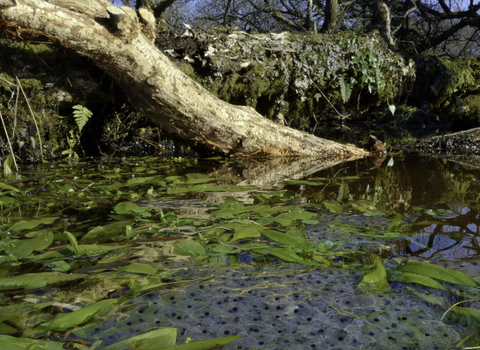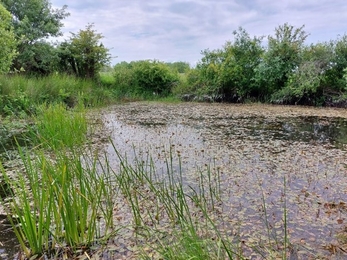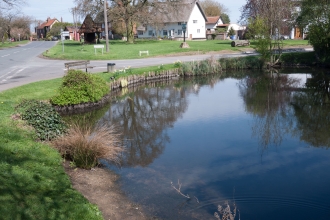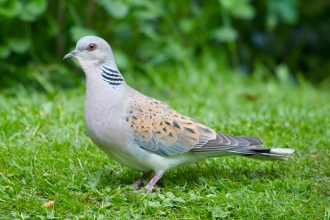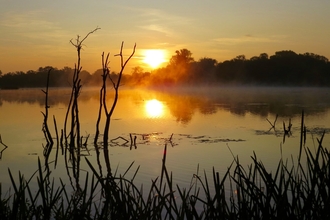In the last 100 years, half a million ponds have been lost. But we're on a mission to bring them back.
Where have all the ponds gone?
Mostly, ponds are lost through a lack of appropriate management, in which trees bordering the pond are allowed to grow too big. If they do, their roots can draw up so much water from the pond that the pond starts to drain and dry out. Excess leaf litter falling into the pond can lower the pH of the water, making it more acidic. Excessive tree growth can also overshade a pond, reducing light available for plant growth both on and under the surface.
Some ponds have been infilled due to changes in agricultural practices, particularly in the post-war period. As maximising agricultural efficiency became the name of the game, hedgerows between fields were ripped out to create larger arable spaces, and this hedgerow material was often then thrown into ponds. These in-filled ponds, often referred to as ‘ghost ponds’, can sometimes – though not always – be seen as waterlogged corners in arable fields.
Water for wildlife
Here's a few of the species that rely on ponds.
Mapping out the future of Essex's ponds
Fortunately, ponds are incredibly resilient. With the right management, ponds can bounce back quickly to a healthy ecological state. We are working with the RSPB (Operation Turtle Dove) to restore lost ponds. With the help of dedicated River Champion volunteers, 10,000 historic ponds have already been identified.
Bringing lost ponds back
The next phase will be matching trained volunteers with farmers and landowners, to help support them to restore their lost ponds. Farmers and landowners across the county form Farm Clusters. These groups are helping us to introduce ponds back with funding from Farming & Wildlife Advisory Group (FWAG East). As 99% of the historic ponds in Essex are on farmland, farmers are really supportive of this project and are invested in aiding nature recovery by restoring their ponds.
Example of a restored lost pond
Working with partners like Essex Wildlife Trust and the RSPB is absolutely vital to the success of the North Essex Farm Cluster. 70% of all land in the UK is used for agriculture, so enabling strong partnerships between farmers and these organisations is essential to achieve sustained, high quality nature recovery at scale in our countryside.North Essex Farm Cluster

